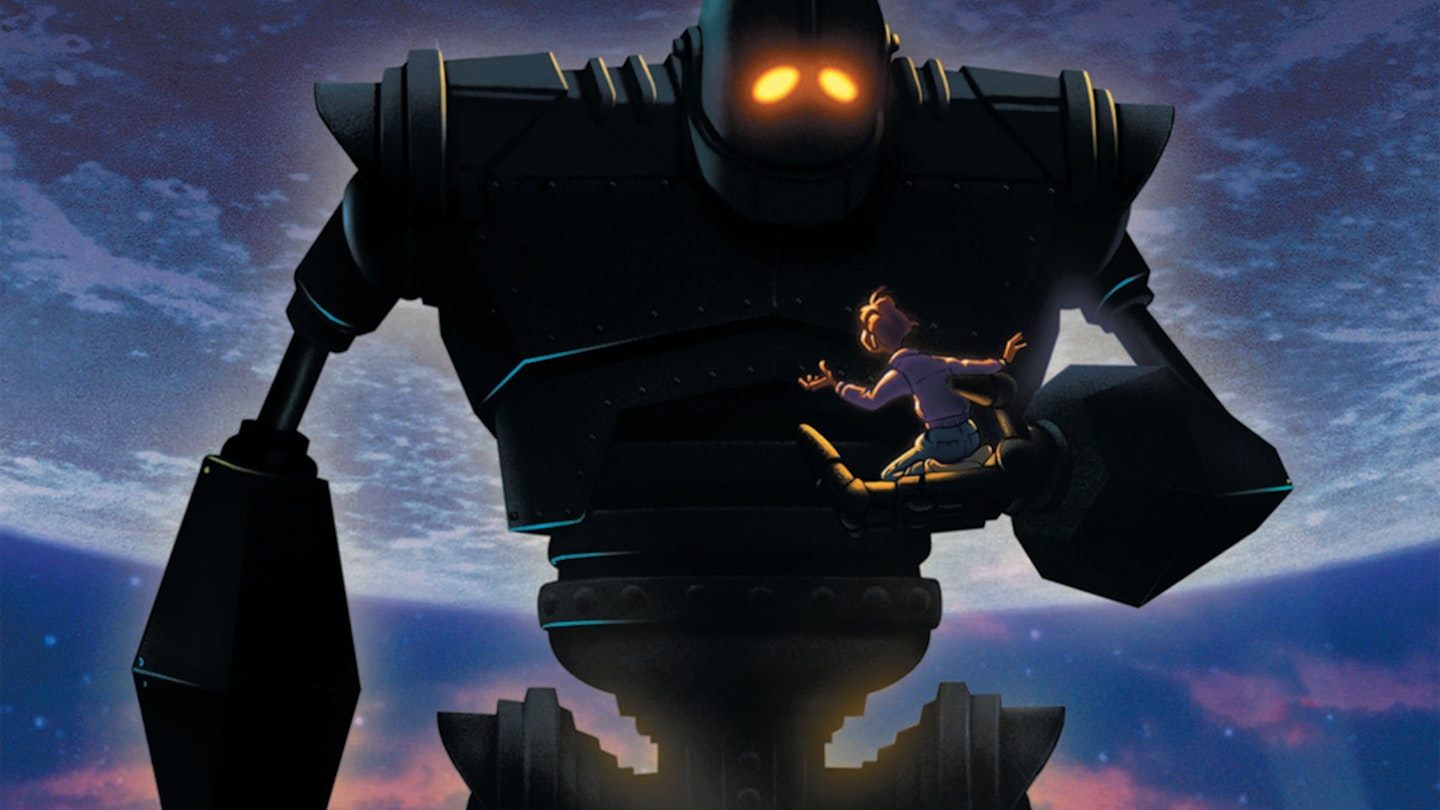In 1957, with Sputnik in orbit and America in a panic over the communist threat, youngster Hogarth Hughes (voiced by Eli Marienthal) stumbles over a newly-arrived visitor from space - a towering robot with a dented dome that has given it amnesia. After rescuing the wonderful being from electrocution at a power plant, Hogarth hides it in a junkyard run by sculptor Dean McCoppin (Connick Jr.) while paranoid Government agent Kent Mansley (McDonald) searches for the creature that has been taking sizable bites out of cars and other metal structures. Realising that it has been constructed as a weapon, the giant decides that it doesn't want to be a gun, but when Kent calls in the army and even summons a nuclear strike, defence mechanisms switch on and a tragic outcome looks likely.
After the scrappy, opportunistic Space Jam, this second fully-animated feature from Warner Bros is a delightful surprise. Based on a children's story (The Iron Man) by the late Ted Hughes, this plays an interesting riff on the magical friend theme so common in American film and deserves points for its unfashionable commitment to pacifism. For a cartoon, it boasts a very sophisticated depiction of the 50s - a glimpse of a "duck and cover" atomic survival instruction film in school, a warmly affectionate depiction of the espresso-chugging hipster Dean and his abstract sculpture projects, and Kent's right-wing nutcase militarism. After so many Japanese cartoons in which robot warriors blast anything that moves while their young pals cheer them on, it's refreshing that this hinges on the wish of the giant not to be a weapon.
Of course, the big attraction is the iron giant itself. At one stage, it transforms into a scary alien being with War Of The Worlds heat-rays and impressive zapping capability, but it is mostly a lovably old-fashioned, clanking 'bot with a big chin and the square shoulders of a '50s fridge. Animation auteur Bird, a veteran of The Simpsons and King Of The Hill, makes this a fully-realised character which should delight any kid. Perhaps because it has a certain subversive tone, this was overlooked in America; it deserves a bigger audience overseas, where its message as much as its charm will most likely be far better received.

